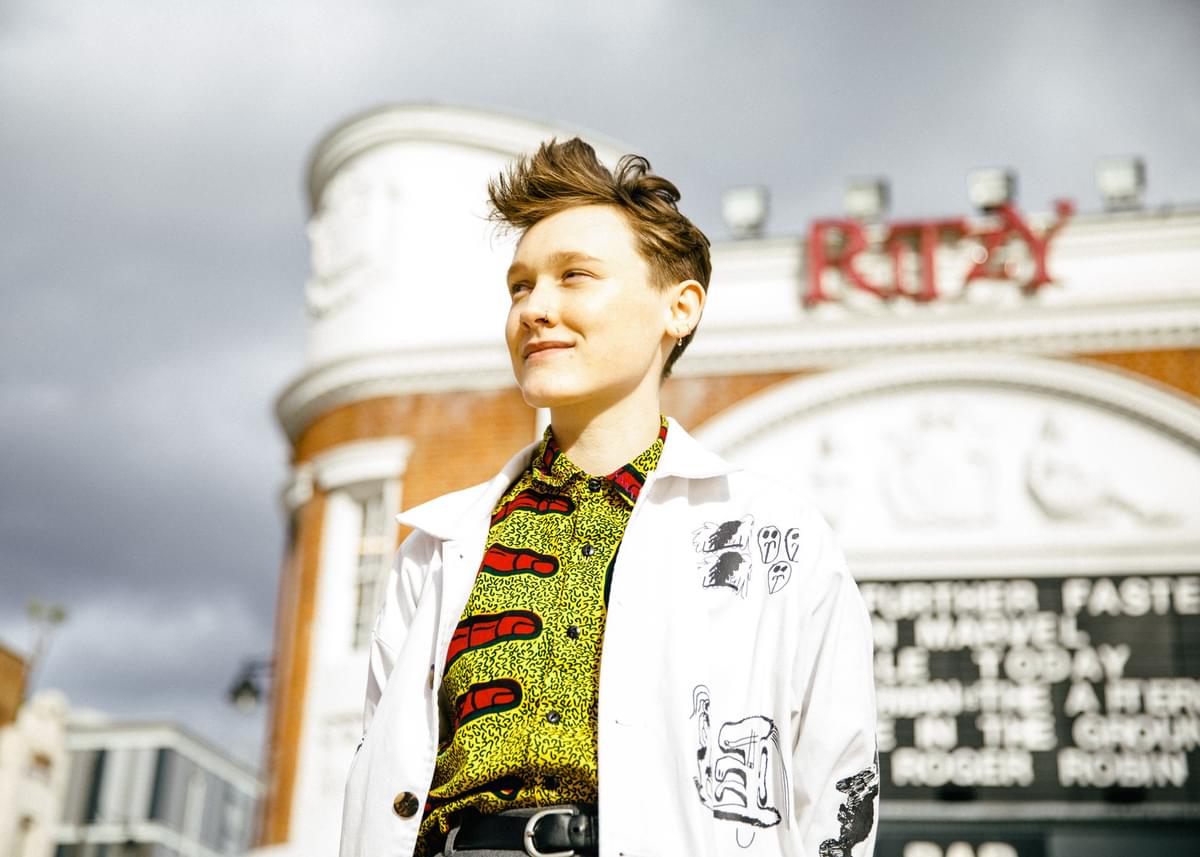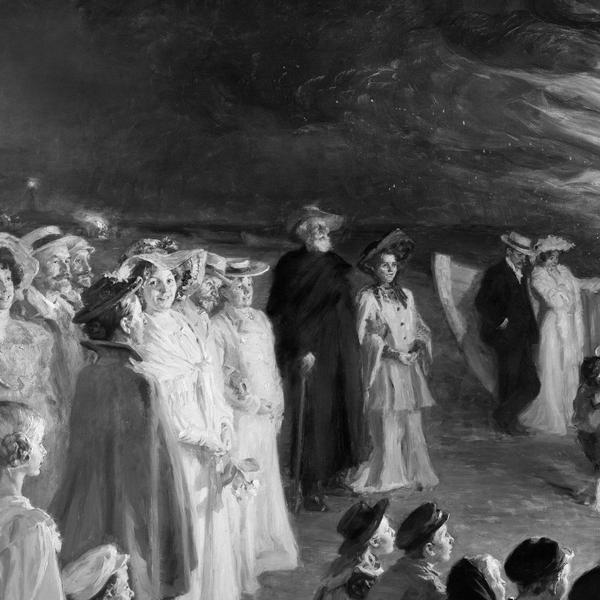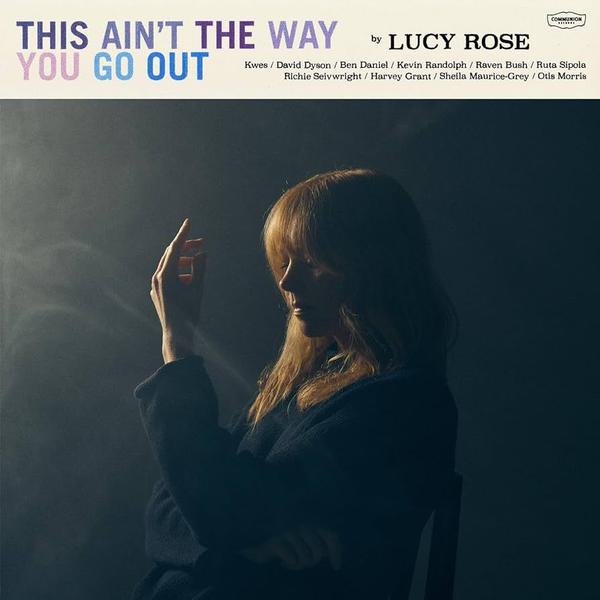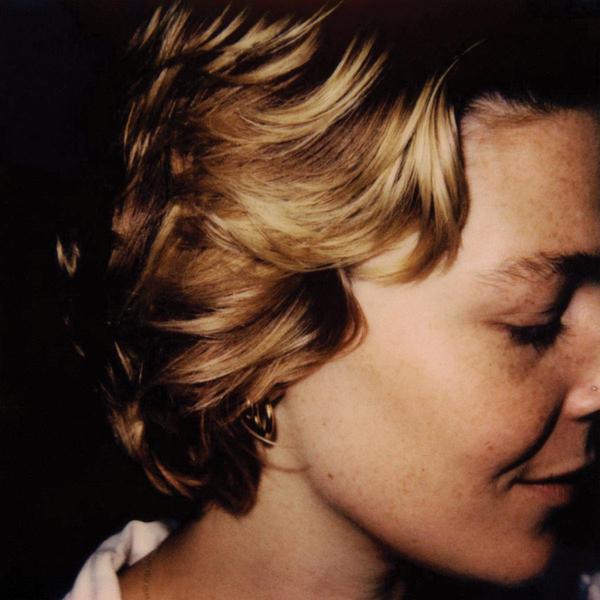
More Than Enough Identities
Northern Irish singer/songwriter SOAK shares with Thomas Harvey how life has shaped her - but also why she's finally stopped caring.
Throughout our lives we are put in boxes, and Bridie Monds-Watson has spent her life feeling like she has to have a label. On the release of her second record, however, her opinion on identity is finally changing.
Monds-Watson’s debut album Before We Forget To Dream was released in 2015 when most of her friends hadn’t even finished school yet. This year’s follow-up Grim Town seems borne out of themes of internal struggle, but the artist known as SOAK is resolutely comfortable in her own skin, displaying the record’s authentic themes of loneliness and hopefulness.
“When I was younger is when identity meant the most to me, like when I was thirteen and first realising who I was and how I presented myself,” she explains. “Everything we do – like getting dressed in the morning – is how you represent yourself, how people judge you when they first meet you.”
Following extensive world tours, Monds-Watson came to the realisation that she wasn’t sure she knew who she was without music.
“I toured for four years, and for the last two years of it really intensely. I wasn’t giving myself any time to reflect on my mental health or paying it any attention – it’s the age I was, and not being around friends [of] that age. I didn’t realise what effect it was having on me. This new record was borne out of a really depressing era of my life. To be here now and have finished the record and awaiting it coming out is such a strange place.”
She was just thirteen years old when she began a project under the SOAK moniker. As a result, the young artist was raised to adulthood as a touring musician.
“I learnt so much about myself and about life. You have to have all of that to experience the whole spectrum of emotion: you have to have your lows and highs and your rollercoasters – all of it.”
Growing up in Derry, Northern Ireland, Monds-Watson wasn’t raised with a religious identity like many of her Protestant or Catholic friends. She feels blessed to have lived in the place she did, within a community that accepted her for who she was from the beginning.
“I was never given [religious] identity as a kid. It’s really defining at that age because it determines what school you go to, where you live, and things like that. Even though there wasn’t much prejudice against either religion, it was still an undercurrent.”


Instead, she remembers a different kind of religion. She reflects on a cherished memory of playing the lava game in her front room, saying: “my first memory is running round with my brothers when I was two years old, [listening] to Mozart and Beethoven, and then Pink Floyd and Joni Mitchell.”
Our guardians have such a huge influence on our identity, not least through the music they share with us in early life. As Monds-Watson rattles off a list of her mother’s favourite musicians (Jeff Buckley, Damien Rice, Leonard Cohen), it’s abundantly clear how these inspirational artists have filtered into her own songwriting. She describes “subconsciously listening to Pink Floyd” as “such an exciting thing” – as much so now as it was in her childhood.
“It’s kinda druggy noise. It does a lot for your imagination as a kid. As I began to write music I would come back to those things. I didn’t [pay] that much attention until I started to write; it was much more about me and about finding what music I liked, who I could identify with, and who I felt understood by.”
“I broke down so many barriers that I had with genre and everything has become so genre-less.”
Monds-Watson then goes on to explain how, as she developed herself and started to grow into her own skin, she begin to construct her own identity with the help of her favourite music.
“I really liked Tegan and Sara when I was fourteen. They were really cool, and at that point in time they were so important as a gay band for me. My little brother is also gay, and he was like, ‘they’re my band too’ and I’d be like, ‘no they’re not!’ Every time I’d hear it in his room I’d be like, ‘turn it off!’”
Whilst everyone knows that sense of wanting a beloved artist to be theirs and only theirs, Monds-Watson is keener to share her favourites these days.
“I’m never off Spotify and love finding new tracks and being recommended stuff,” she says, before launching into a list of examples: “Pinegrove – love that band; lyrically faultless – Snail Mail, The National.”
She admits that her tastes also straddle the pop sphere: “I cared [about what I listened to] so much before – an image thing. If you like it, who cares? Troye Sivan, Robyn, whatever.”
The singer goes on to elaborate on the impact these less self-conscious listening habits have had on her own songwriting: “I broke down so many barriers that I had with genre and everything has become so genre-less.”
“I’m so much more confident and comfortable in myself. I just wanna be in the crowd when we do the shows and not on the stage and hiding.”
Overall, Monds-Watson certainly cares a lot less what people think about her than she did when she was younger. “In terms of identity ‘I couldn’t care less’ is how I feel in this stage of my life,” she laughs.
Perhaps this comes from having grown up in a positive and affirming environment, or maybe it’s Monds-Watson finally accepting herself so wholeheartedly that who that is specifically is no longer important. She notes how society seems to default to defining people by their separate identities, but wonders why people feel such a need to label themselves.
“Does it maybe go back to caveman times?” she muses, “when everything was grouped – that’s how life worked so you didn’t get eaten by a mammoth. That’s why you grouped together: to feel a part of something or to feel less alone.”


Today, however, Monds-Watson feels there is more potential for individuals to develop and grow out of the need to label ourselves.
“At this stage of my life I don’t really want to call myself anything because I don’t want to be restricted by anything,” she asserts. “I feel like I’m more than a label, which is nice. When I was younger I clung to them so much and I was like, ‘no I’m this, and you are this’. That’s just how you work out who you’re meant to hang around with and where you fit when you’re a kid. It’s like lego really.”
While Monds-Watson might have transcended the need to label herself, she admits an understanding of their benefits: a sense of community, and wanting to belong when the world makes you feel like you don’t fit in anywhere else.
“It’s just a way of people trying to be understood,” she elaborates. “That’s ultimately the point in labels and why people use them. I guess people understand [you] more easily when you give someone a label.”
Many artists find that they release music with personal expectations of their own identity attached, only to find themselves taken on a journey of success that shapes them entirely differently. SOAK’s success imbued Monds-Watson’s musical journey with this same steep learning curve.
"I grew up really shy,” she admits. “It felt really strange to end up in front of a crowd. I wasn’t nervous about it, but I wasn’t that open to letting people in onstage, and hid behind my guitar.”
Writing tracks about how it feels to “B a noBody”, only to end up playing them at shows around the world is enough to turn an artist’s mind at any age. For Monds-Watson particularly, it took a lot to be so open and honest at such a young age – particularly as her character was never that way inclined. Through relentless expression of her own introspection, it was sometimes hard to remember exactly why everyone was still listening.
“I’m always glad if I can ever be of support to someone. I know I could potentially help other people and make them feel understood.”
That said, with a new record came a new chapter in Monds-Watson’s life: one that sees her moving steadfastly onwards and upwards, both in her songwriting, and in her own personality.
“I’m so much more confident and comfortable in myself,” she enthuses of her growth, a hint of pride in her words. “I just wanna be in the crowd when we do the shows and not on the stage and hiding.”
Despite the scale of her success, Monds-Watson admits that it’s still easy for those who don’t know her to judge her without a second thought. How does she think she might appear to these people?
“Small. Potentially naïve,” she answers. “How people who don’t know me describe me is typically ‘thirteen-year-old boy who isn’t a thirteen year old boy’. I got my hair cut short – now I’m IDed all the time and they’re like, ‘here you go son!’ I’m not a son… but thank you.”
Monds-Watson agrees that “androgynous” is a label with which she likely could identify – but more importantly, the name of a great song by The Velvet Underground. That’s how it should be: words and labels meaning nothing more to us than how we relate to them with memory or songs. She admits that she’s fortunate that for her, that’s all her expression of gender and sexuality had to mean.
“Where I’m from is a very accepting place,” she re-iterates, circling back to previous mentions of her childhood in Derry. “Being gay in that environment – I’ve never suffered any backlash, and was supported so much by my parents and the local community. I was very lucky and privileged to have grown up there. I like to say that, because people expect me to be like, ‘bombs are going off all the time and I got shot like five times!’”
It’s easy to presume what a place is like from reading headlines, but Monds-Watson believes it’s worth taking the time to address this prejudice.
“Obviously Derry had its history, but I grew up in the ceasefire [following] that era and my childhood was just lovely. I had all the freedom in the world. Where I lived I was close to a town – big enough – but also twenty minutes from the sea at all times.”
With so many young people – and particularly those that are LGBTQ+ – not feeling accepted for who they are, it’s uplifting to hear Monds-Watson talk about her childhood with such positivity. By necessity, identity often becomes a focal point in an LGBTQ+ person’s life, but for Monds-Watson it certainly doesn’t appear that way.
“As a teenager your identity is built on what you’re into and who you hang around with. Now I don’t [do that]. I’m gay, but literally, who cares?”
Broadly, she believes that society is taking steps in the right direction – "seeing kids’ books with two parents of the same gender now is amazing!” – but agrees there’s still a long way to go. Whether intentionally or not, Monds-Watson has found herself playing her own part in changing attitudes and allowing her listeners to accept themselves for who they are.
“I’m always glad if I can ever be of support to someone,” she says. “Obviously I don’t know everyone who listens, but I know I could potentially help other people and make them feel understood.”
Despite her work’s potential for helping others, Monds-Watson admits that’s never been the goal behind her music
“I wrote it more as I need to get it out of my system,” she admits. “To talk about it. It’s cathartic to write.”
“I wanted a new identity, because I was about to be so honest with my music and I wasn’t in my real life. Doing it through the medium of SOAK felt safer.”
Writing therapeutically provides a natural relief: coming out of your head to put your feelings into a song that is then given to every listener around the world. They are being told a story, and parts of that story can then become a part of their own.
“I always revert back to when I was young and what bands meant to me,” Monds-Watson muses, considering her position on the other side of this exchange. “The fact I liked that band was part of my identity. If you can be that to younger listeners it’s quite an honour, because you need that at that age. You need everything you can get.”
Keeping a balance, however, can be difficult. When you’re trying to provide much-needed representation, your identity can become a focus that draws attention away from the music.
"I was so scared to be politically involved and voice my opinion in that way,” Monds-Watson confesses. “Like, ‘the label of this is gay music’ or ‘that’s a gay artist’. I just wanted to be SOAK and then have a little tiny side bracket.”
Why, though, did a younger Monds-Watson feel such a drive to distance herself from her sexuality?
“You cling to it when you have no idea who you are and what’s going on,” she explains. “You find these little pieces you can label in yourself. Sometimes it’s a crutch.”
Whilst losing yourself in a particular label might slow the process of figuring out who you are, Monds-Watson adds that her stance on expressing her own identity both through and outside of her music has changed over time.
“I had the belief that everything was fine because in my life I had never [experienced] any homophobia, but I’ve come full circle now that I see the platform I have. I’m letting myself and my audience down if I don’t speak about how I feel. If I can help, I should. Just being open about [being gay] and not hiding is such a huge statement. Every time someone in the public eye does that it shows how normal it is.”


In acknowledging that discovering and existing in her sexuality was not a particularly fraught experience, Monds-Watson sheds light on an aspect of herself that has been a little more complicated.
“When I was growing up I never really liked my name Bridie,” she admits. “Everyone thought it was short for Bridget – Bridget is such a granny name for me. I didn’t know any cool Bridie’s when I was growing up. I really liked Where The Wild Things Are, and I loved the main character, so I made everyone call me Max for two years of my life.
“I’ve always been trying to get away from the label of my own name and I didn’t want to release music that way. I was thirteen [when I] came up with the whole SOAK thing. I wanted a new identity, because I was about to be so honest with my music and I wasn’t in my real life. Doing it through the medium of SOAK felt safer.”
Everyone wants to feel safe at the age of thirteen, but new record Grim Town comes from a place full of danger and uncertainty, more reflective of Monds-Watson’s age and the world she inhabits nearly a decade later.
“It’s being in an environment of anxiety and life changes, and knowing all my friends were in a similar place,” Monds-Watson explains. “So much is expected of you and you’re expected to be happy.”
She adds that a lot of these pressures come back to a specific facet of her identity; one that she would banish from this world if she could.
“Gender: the idea that women can’t do things and men can’t do things and women can’t wear these things and men can’t wear things. I would want to remove that label and that ideology,” she asserts.
Eventually, though, Monds-Watson has found something that surpasses gender roles for her: tattoos.
“I liked the identity thing of wearing parts of you that are internal externally,” she explains. In her case, tattoos confer the ability to physically wear a thought or behaviour, or to mark a time or songs.
“The last [tattoo] I got is on my stomach. I got a burning car, [after a] Paul Buchanan song called ‘Cars In The Garden’. I asked my mum to draw it for me but she took too long so I just went and did it.”
Truthfully, Monds-Watson knows that identity often comes down to how other people feel they need to label and identify you in order to feel more comfortable themselves. At the end of it all, though, how does she want people to identify her?
“Good natured, with good intentions,” she states, firmly. “I’d like someone to say I’m honest, nice to be around - I’d like people to think well of me.”
No doubt the reception to Grim Town has proved that plenty of people do. SOAK’s new music is gratifying and therapeutic; someone honest laying their feelings on the table, and allowing the identity of SOAK to merge with the identity of the listener.
Get the Best Fit take on the week in music direct to your inbox every Friday

Chanel Beads
Your Day Will Come

Lucy Rose
This Ain't The Way You Go Out

Maggie Rogers
Don't Forget Me





